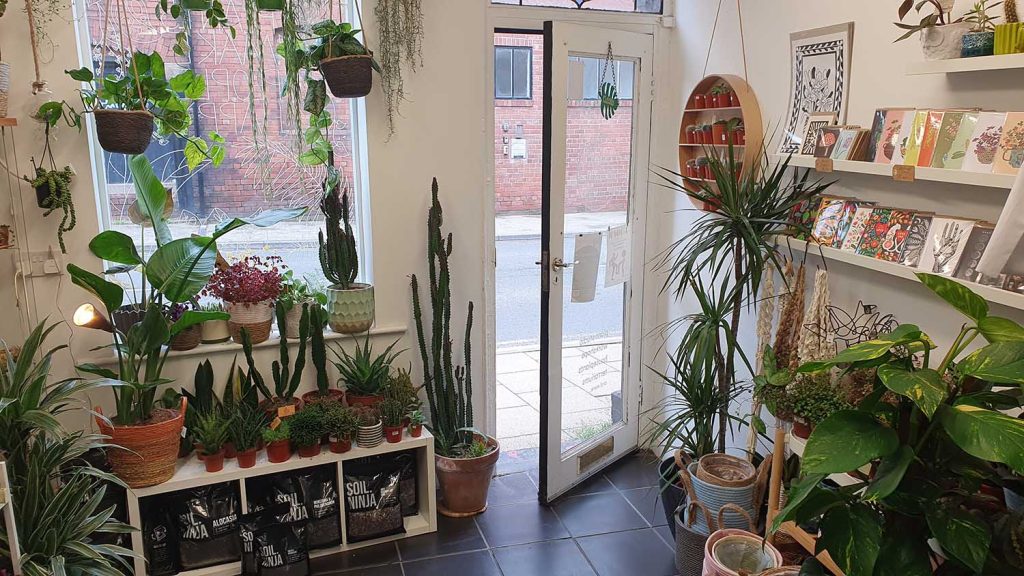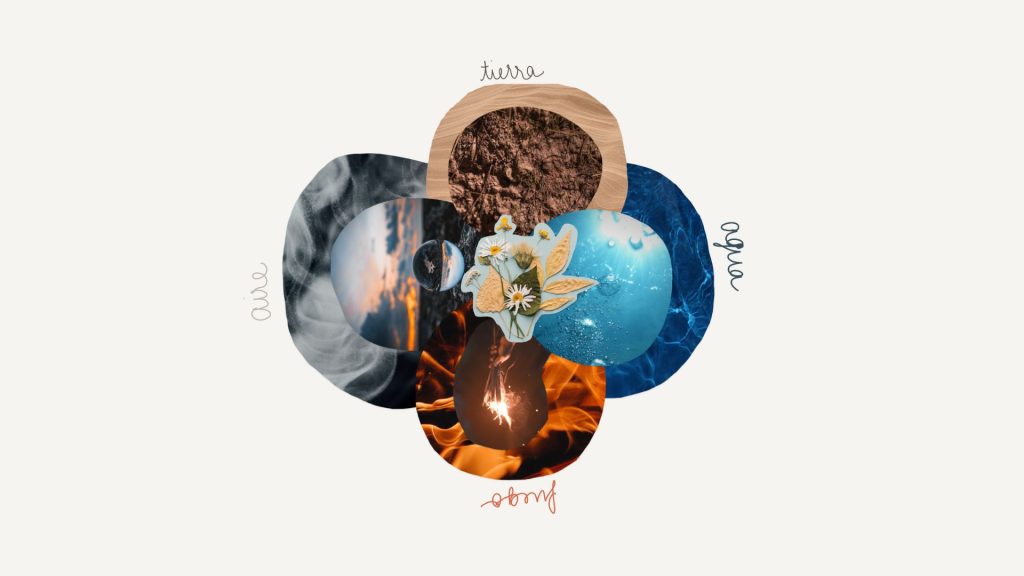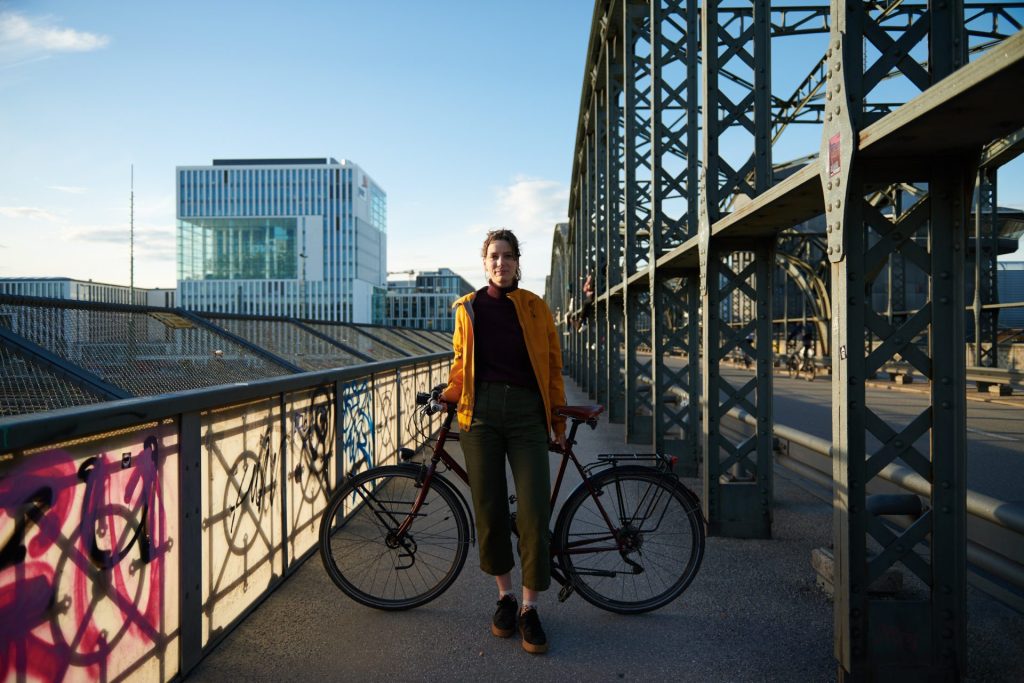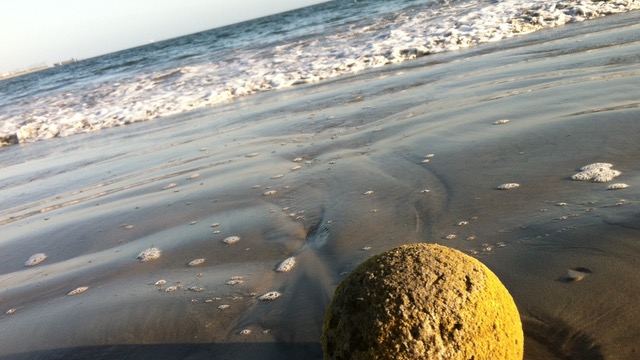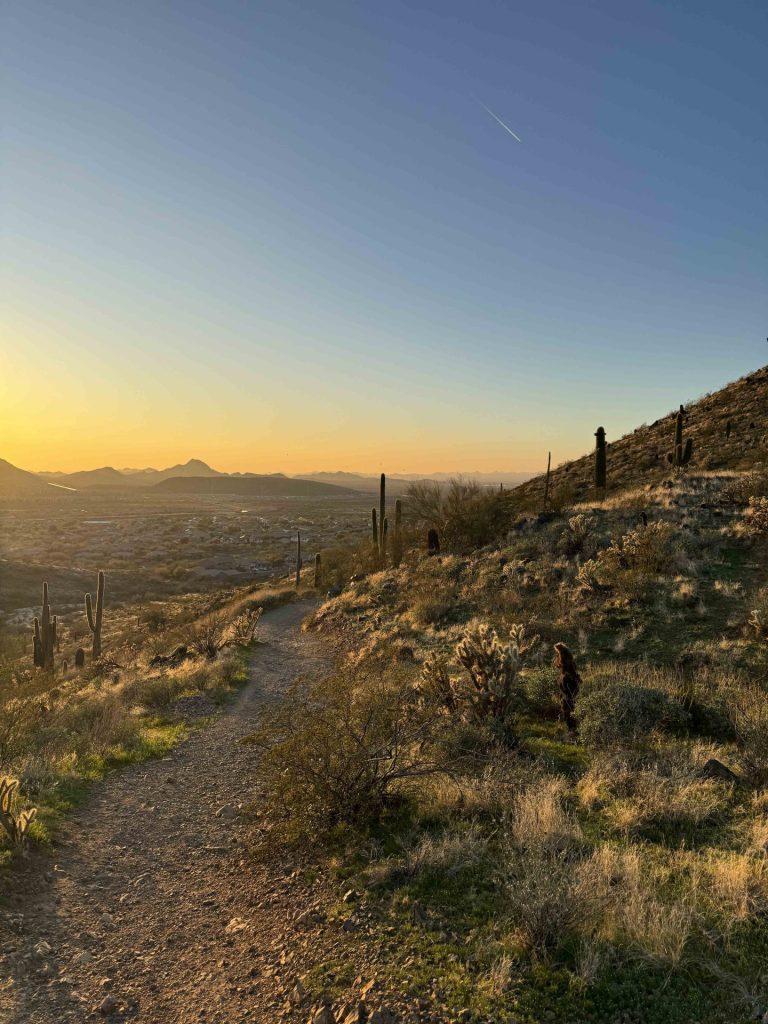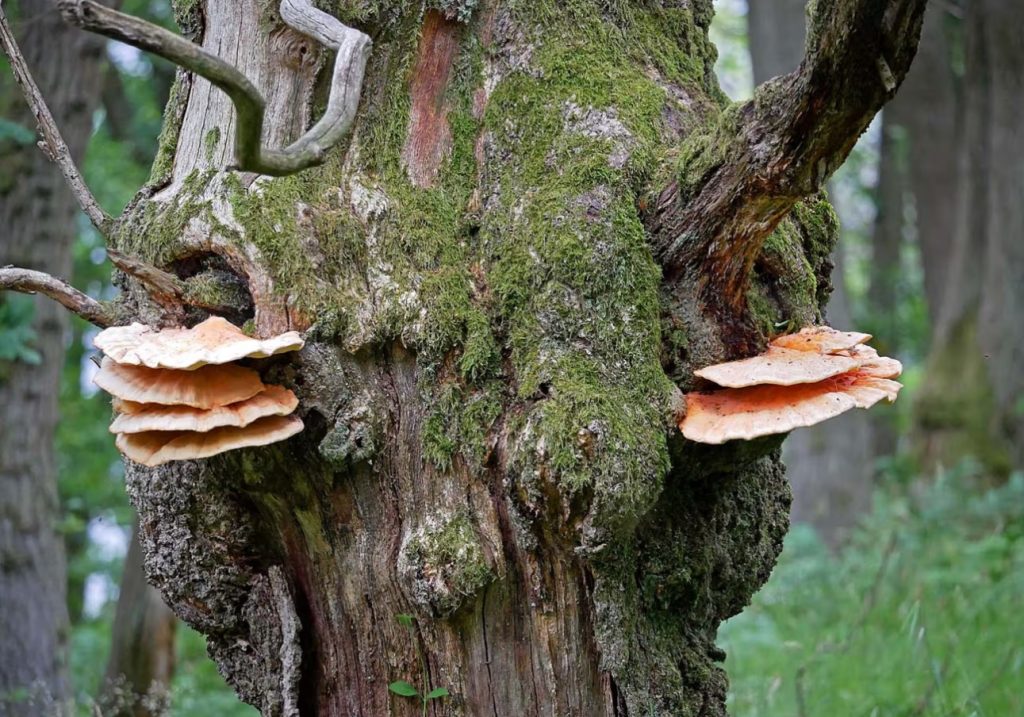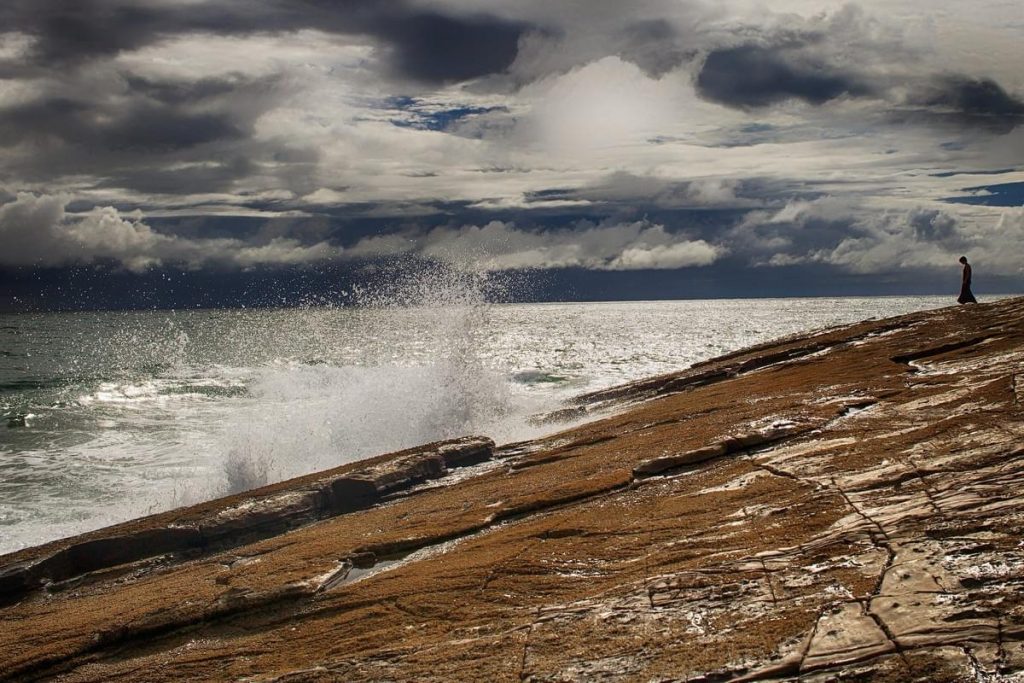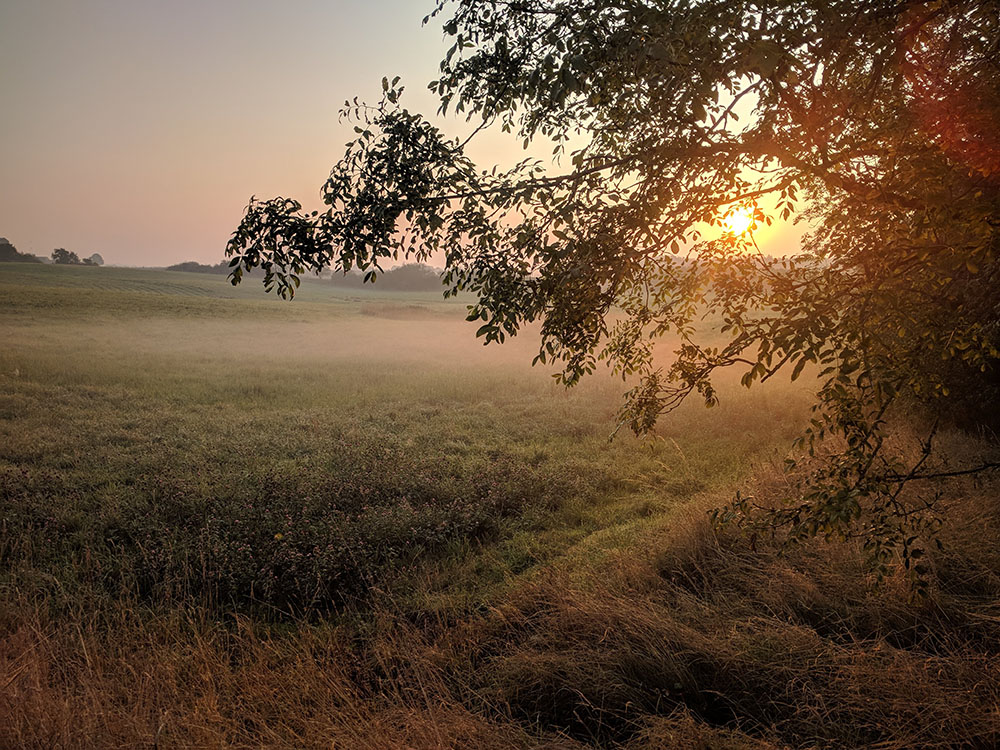
At the start of a new year we often reflect on our time; how are we best to use it? What does the next year hold for us? Next up in our series of Inspiring Activists is Frederikke Oldin who has orientated her work to help us visualise what a truly regenerative future can look like. And from there we build our stories.
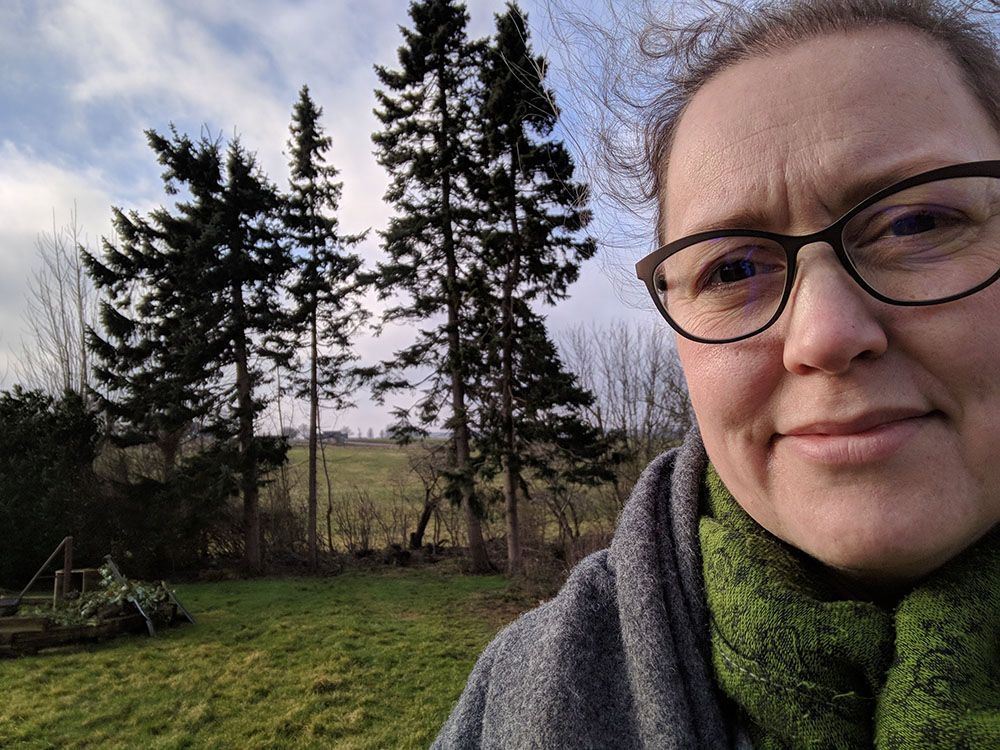
Sophia had the fortuitous luck to meet Frederikke in 2018 at a degrowth conference in Malmø, Sweden. Amidst the mostly academic approach to the topic, they found themselves gravitating around the same need; where are the stories that bring this degrowth future alive for us all? Since then they’ve woven this need into their professional work.
Before we started on the questions, Frederikke and I spoke briefly about how challenging we’d found it to find a mutually convenient time to do the interview. We mused on “being busy doing life” as Frederikke put it, and we both spoke about being mindful and reflecting on the concept of time itself: “it can feel as if it’s not our own to spend,” said Frederikke.
What concerns you about the world today?
“Well, for one thing we need to be transitioning to a more regenerative way of being and living, yet as a society we are unable to see, or feel, what this might look like”. Frederikke explains “when we have no stories for how our sustainable future could be, we become unable to imagine it. And if we can’t imagine it, we cannot create it. The lack in awareness or will, we in the transition movement often diagnose, is partly caused by the lack of imagination which makes it necessary for us to blindly adhere to the ‘business as usual’ model. We’re not ‘bad’ people. We just can’t perceive other options in a way that allows us to follow them”.
What positive contributions are you making?
Although Frederikke has involvement in other kinds of climate work, her main focus is on taking people towards a new imagining – different stories for a different future – via her facilitation of ‘Future Voyaging’ workshops and related work to bridge culture and future. You can read more here: gentaenk.net/en/futures. These workshops are multi-sensory experiences and offer participants the chance to see, feel, hear and smell what a more regenerative way of living might be. So far, a couple of hundred people have done this workshop with her: it’s being used in the Green Youth Movement in her native country of Denmark, and Frederikke is working with artists and creatives on how to ‘translate’ participants’ individual experiences into collective narratives and strategies.
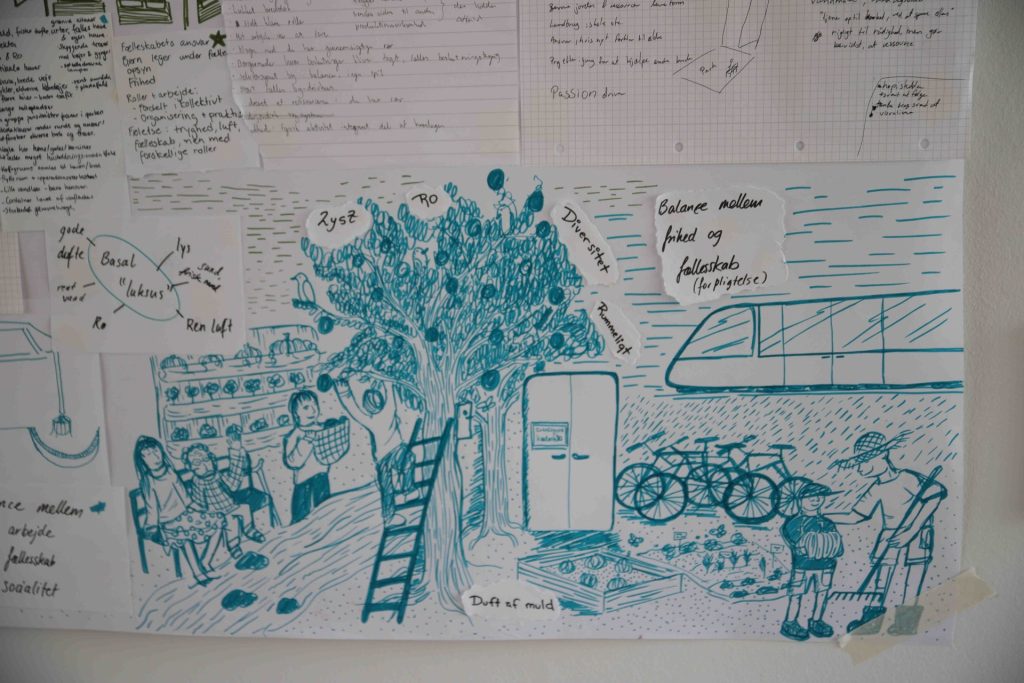
Part of outcome after Future Voyage as participants co-create their regenerative future adding individual visions to the whole.
Have you had to make any sacrifices?
The answer was a clear no here from Frederikke in terms of her personal experience of transitioning into a more regenerative future, but in wider socio-cultural terms – and especially around identity as a working person – she has felt a certain adverse impact.
“I am out of step with the standard growth model for society,” she said. “I don’t fulfil the usual criteria for success. My ‘career’ isn’t in a field that makes sense to most people.” We’ve found this to be a common thread with many of our Inspiring Activists.
How do you stay motivated?
Here’s where Frederikke’s work helps her: she said that she continually hears snippets of possible regenerative futures from participants on Future Voyages or other imagination-sessions which she finds realistic, positive and motivating. Seeing how we might achieve human wellbeing with less brings a freedom that motivates her.
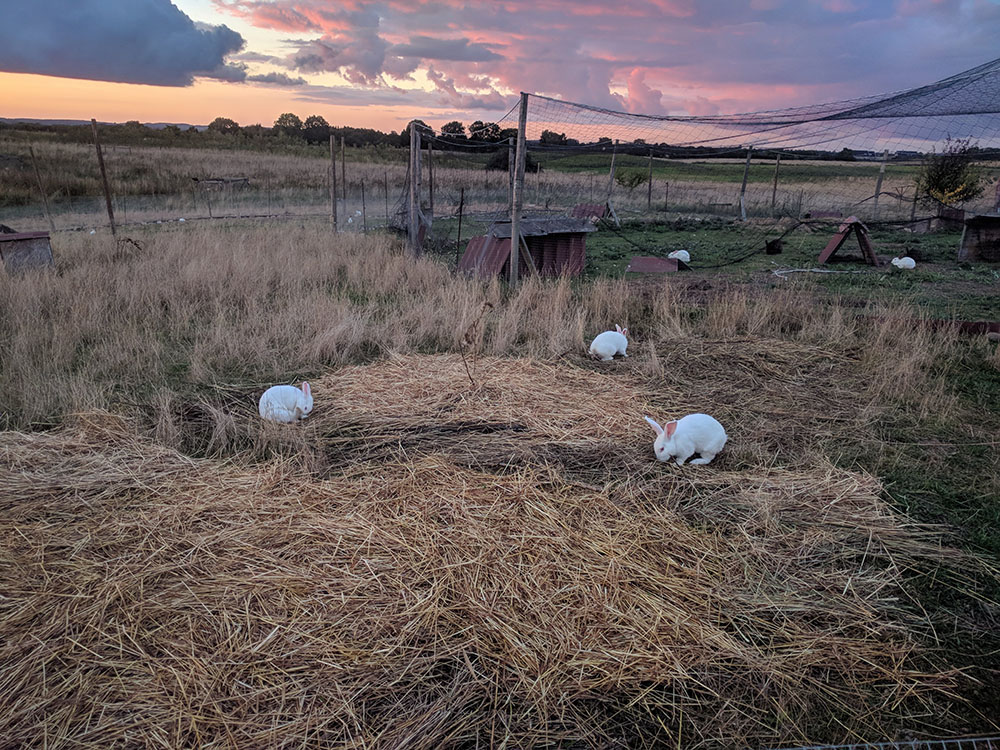
What gives you hope?
Frederikke draws hope from her work, “but it’s important to know how we define hope. As long as we’re not hoping for everything to ‘go back to normal’!” She also hopes for us all finding our way back to “right relationship with the natural world.”
What if… we make the changes needed, what will your world in 2030 look like?
“Since the pandemic, we know how fast changes can be made if deemed necessary”, Frederikke says. She envisions that we’ll still be in transition in 2030, but can see us sharing more (cars, tools, gadgets, land, production and businesses for example) and we’ll be allowing ordinary citizens to take part in designing and defining those changes.
“When the future is designed and decided on by all of us, we all have reason to participate. This is another reason why it’s important that as many as possible take part in creating the visions of where we want to go”.
“We’ll be around each other differently,” she added… “hopefully reducing the pandemic of loneliness and depression that plague modern society”.
A book that has helped you grow
This story changed my perspective on time and sent me on an ongoing investigation of alternatives.
A song that keeps you going
On hard days I listen to the Nordic Jazz of Jan Johansson.
On great days, seeing the new world on the horizon, what’s not to love about Eurythmics’ “I saved the world today”?!
A quotation that lifts you up
“… Another world is not only possible, she is on her way. On a quiet day, if I listen very carefully, I can hear her breathing”.
Arundhati Roy
From the Essay “Come September” from 2002. Find it in the collection “The end of Imagination”. It’s longer in the original. A poem, actually. But it’s often cut down to this.
Your message to the world:
Two things: firstly, if you find transition to a regenerative future scary, you are completely sane and normal. Humans shy away from going into the unknown. Secondly, think about what is valuable and meaningful for you and begin to imagine what life could be like… if communities came together with time to spend, and shared values at heart.
- Connect with Frederikke on LinkedIn
- Visit her website at gentaenk.net/en/futures
